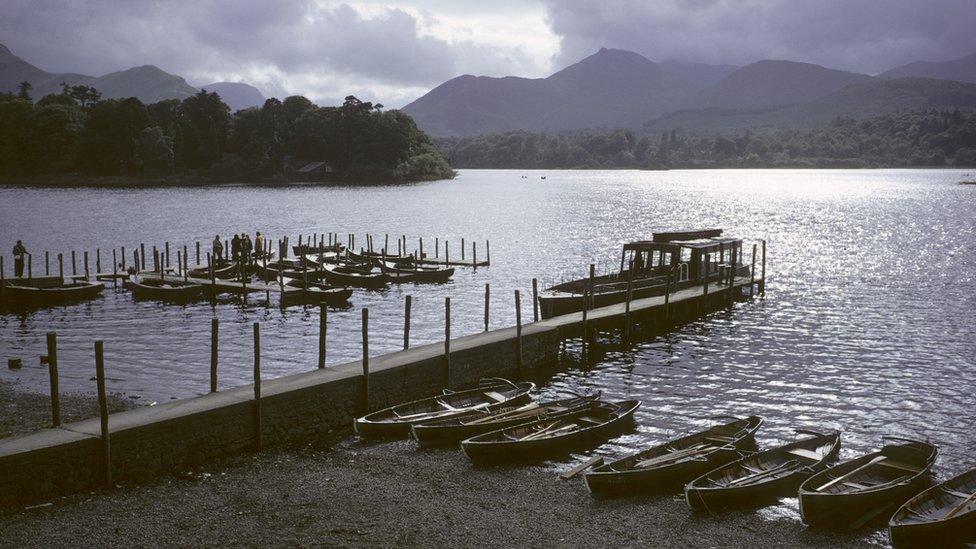New swimming spots monitored for water quality
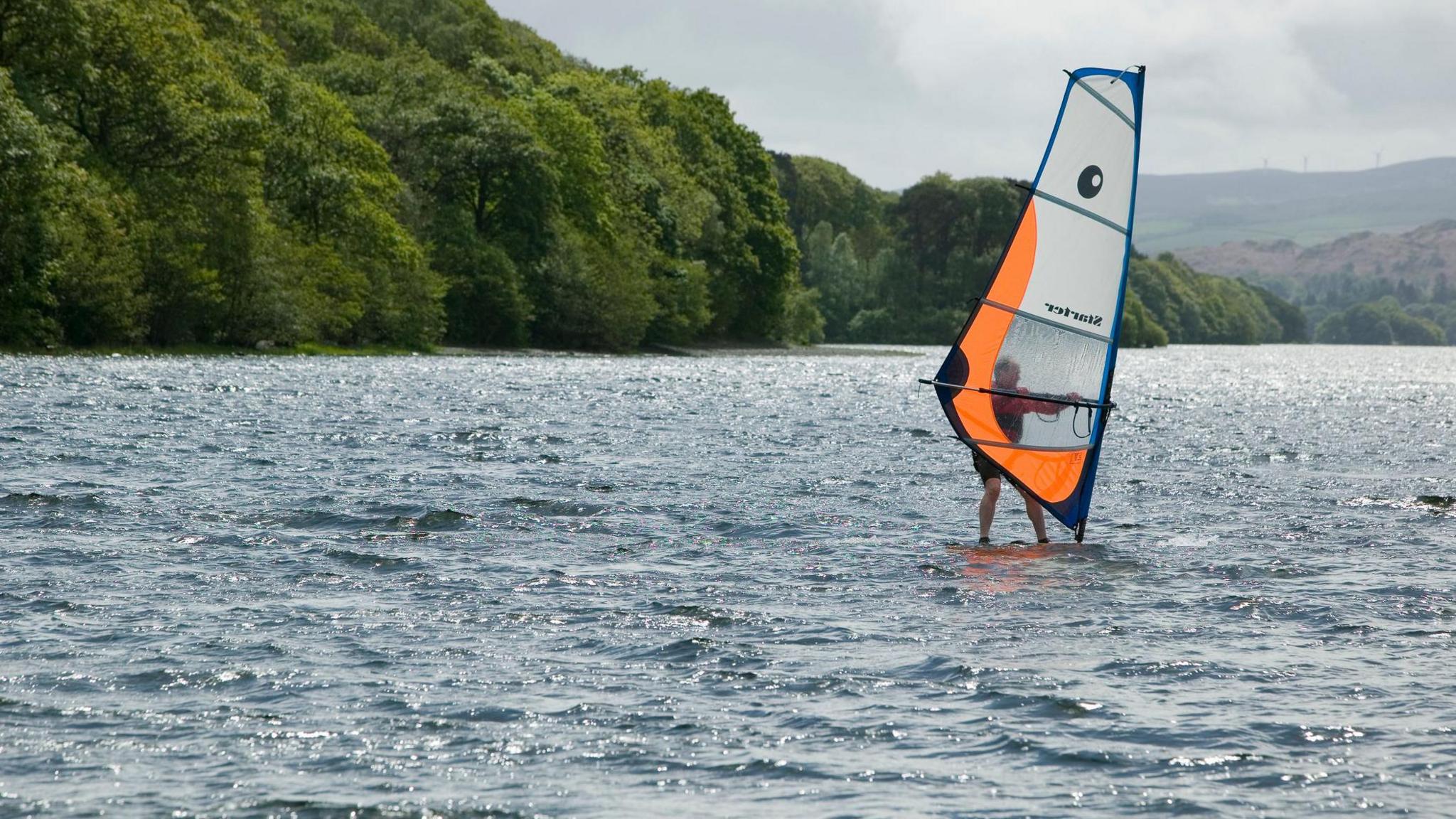
The Environment Agency said the monitoring would help them hold the water companies to account
- Published
Four new swimming spots are to be monitored to make sure lakes have bathing-quality water.
The sites at Derwentwater and Coniston in the Lake District have recently been awarded bathing water status, meaning their quality is monitored weekly between May and September.
The Environment Agency said the information helped it hold water companies to account.
The comments come against a backdrop of ongoing criticism of the water quality at one of the Lake District's most famous lakes, Windermere.
The monitored sites are those recently designated for bathing: Derwentwater at Crow Park, Keswick, and Coniston Boating Centre, Coniston Brown Howe and Monk Coniston at Coniston Water.
"Our specialist samplers come in every week now, during the bathing water season," said the Environment Agency's Andy Brown.
The sample information is then published on the Swimfo website, where people can check the water quality.
Sewage spill
This week it emerged that sewage spilled into Windermere for ten hours in February after a fault with the United Utilities system.
Some campaigners accused the Environment Agency of being ineffective, something it strongly denied.
"From the day that it was reported to us, we were on site very quickly. We took samples and we have opened an investigation," Mr Brown said.
"That is live and ongoing and if we find that there's been a non-compliance with that discharge then we'll take the firmest action that is available to us under the law."
Mr Brown said Windermere's water quality had been rated "excellent" since 2014.
Nigel Wilkinson, from Windermere Lake Cruises, said he hoped the monitoring would make a difference to those coming to the Lakes to enjoy water-based activities.
"It is important to have quality bathing water, but it's also really important to communicate the high standards that we have," he said.
Testing limitations
Ben Surridge, a biogeochemist from the University of Lancaster, warned there were limitations to the testing.
"Currently, it's only operating between May and September each year and there are other times of the year and other locations in Windermere, where people use the water for recreation," he said.
"So at the current time, Windermere has clean water from the perspective of bathing water status as monitored using the standards."
Follow BBC Cumbria on X (formerly Twitter), external, Facebook, external and Instagram, external. Send your story ideas to northeastandcumbria@bbc.co.uk.
- Published16 May 2024
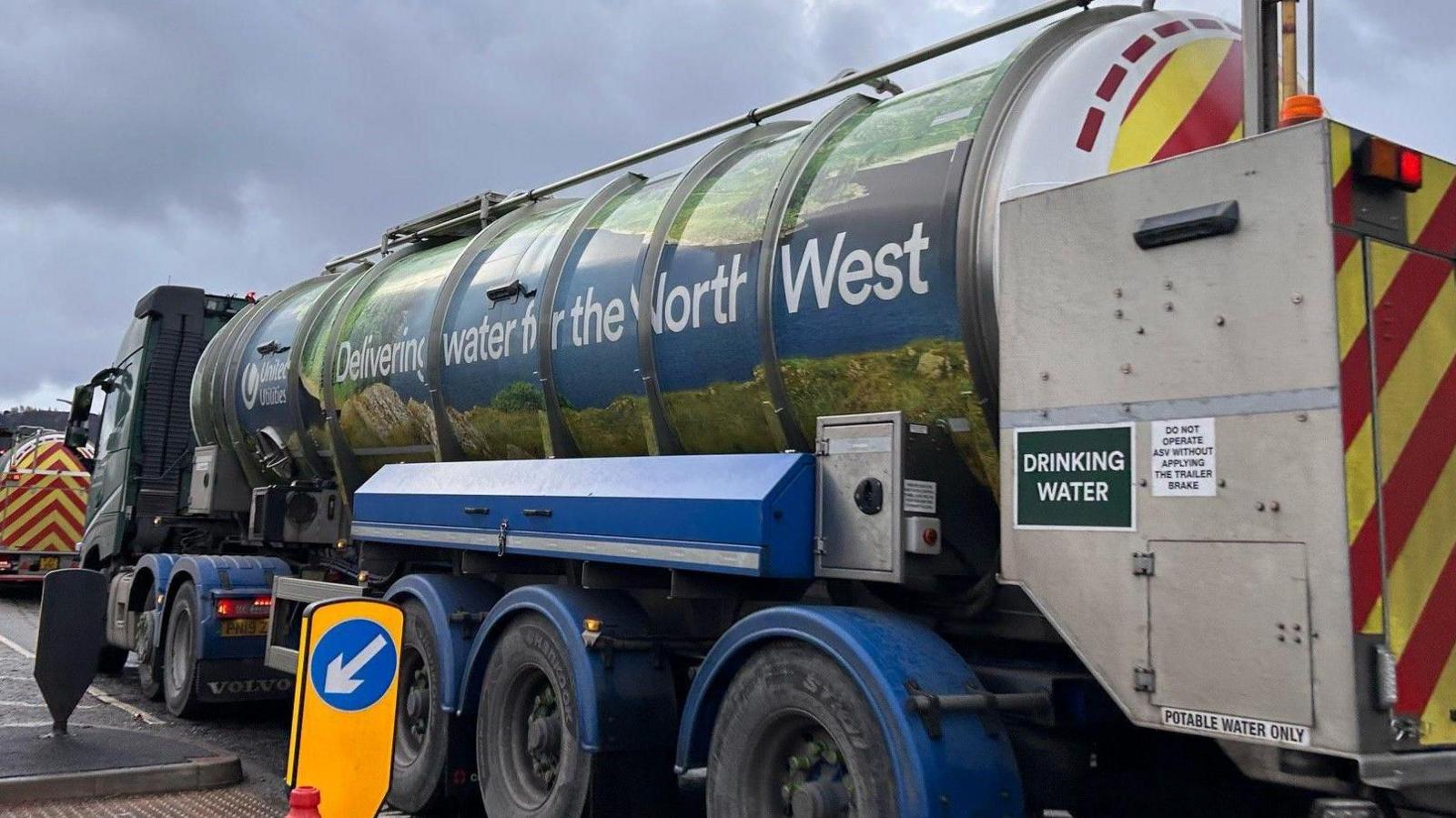
- Published7 May 2024
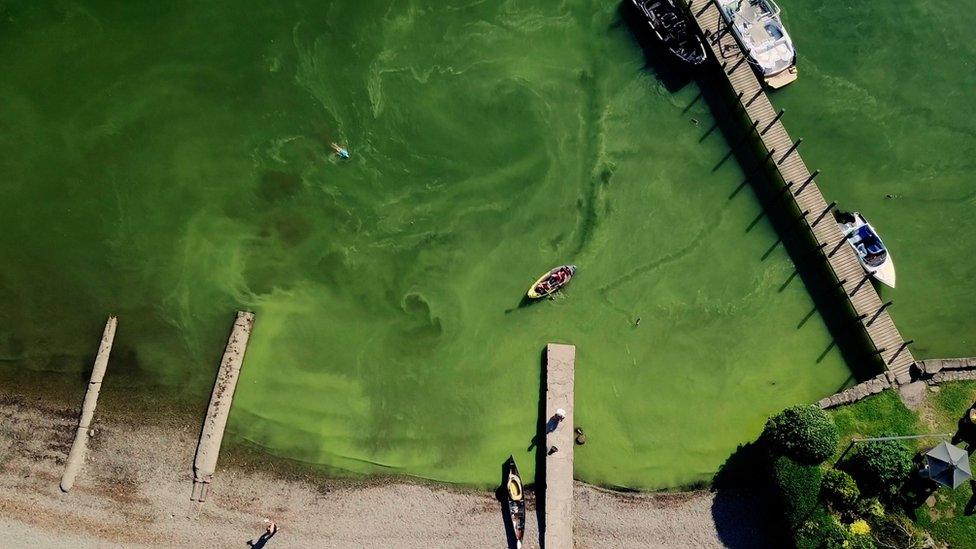
- Published13 May 2024
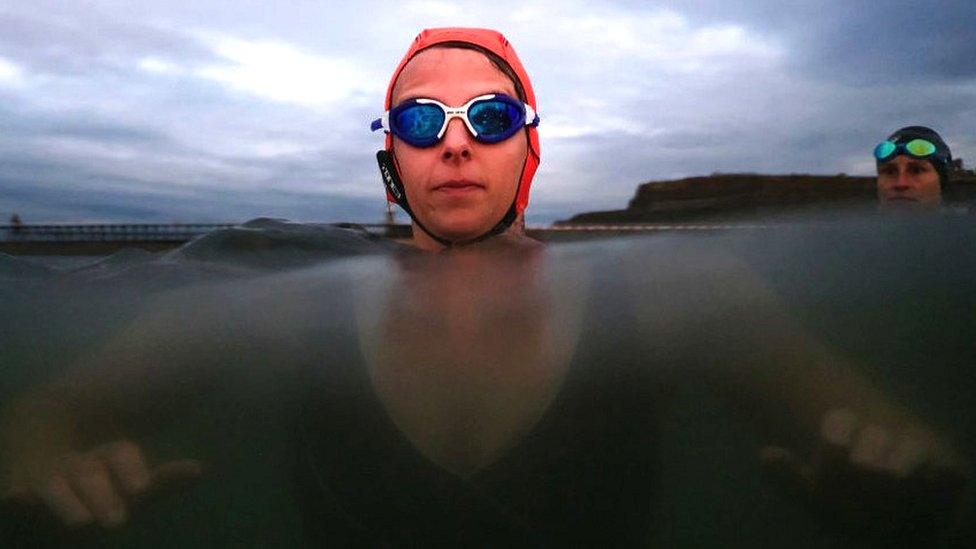
- Published29 February 2024
